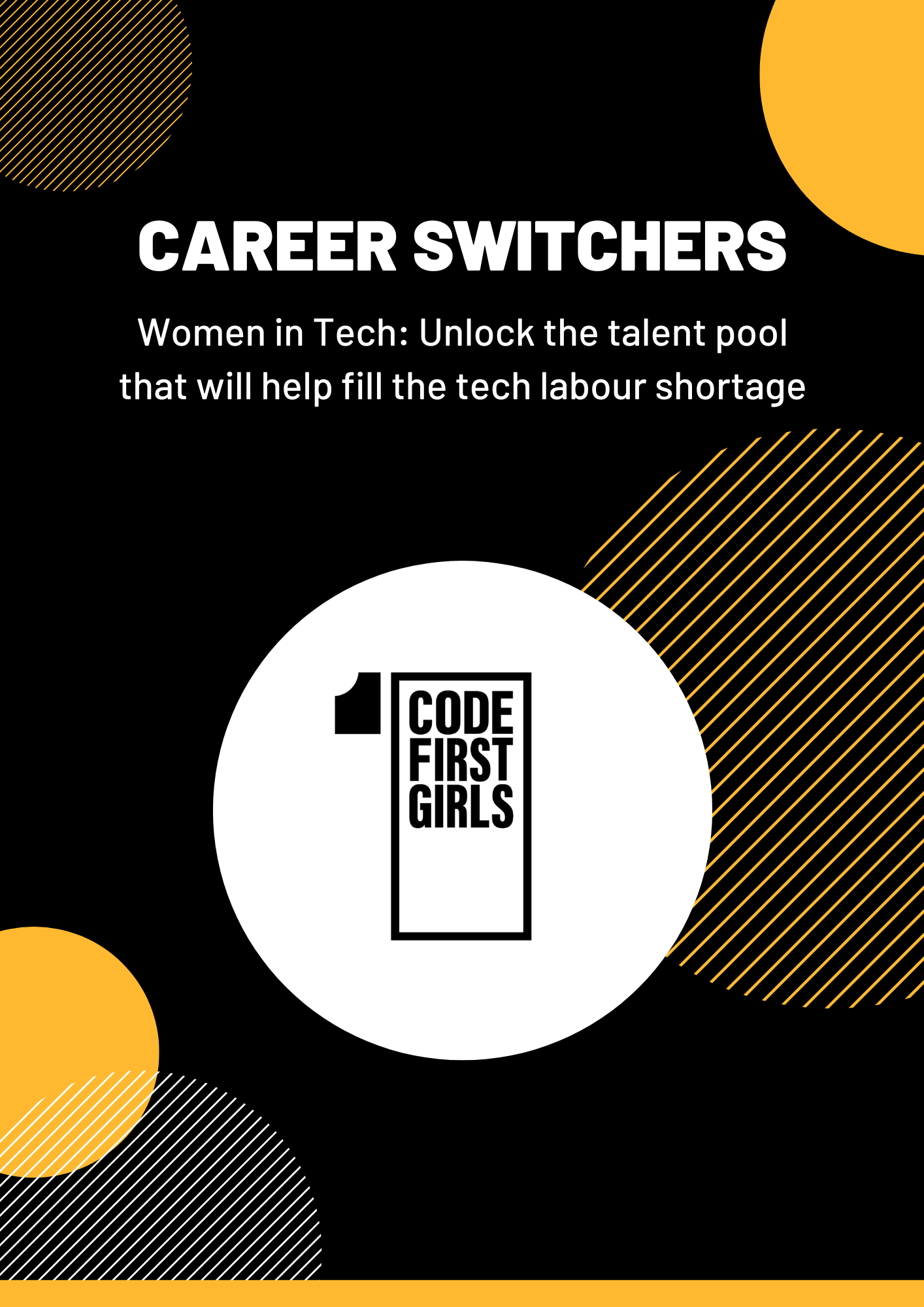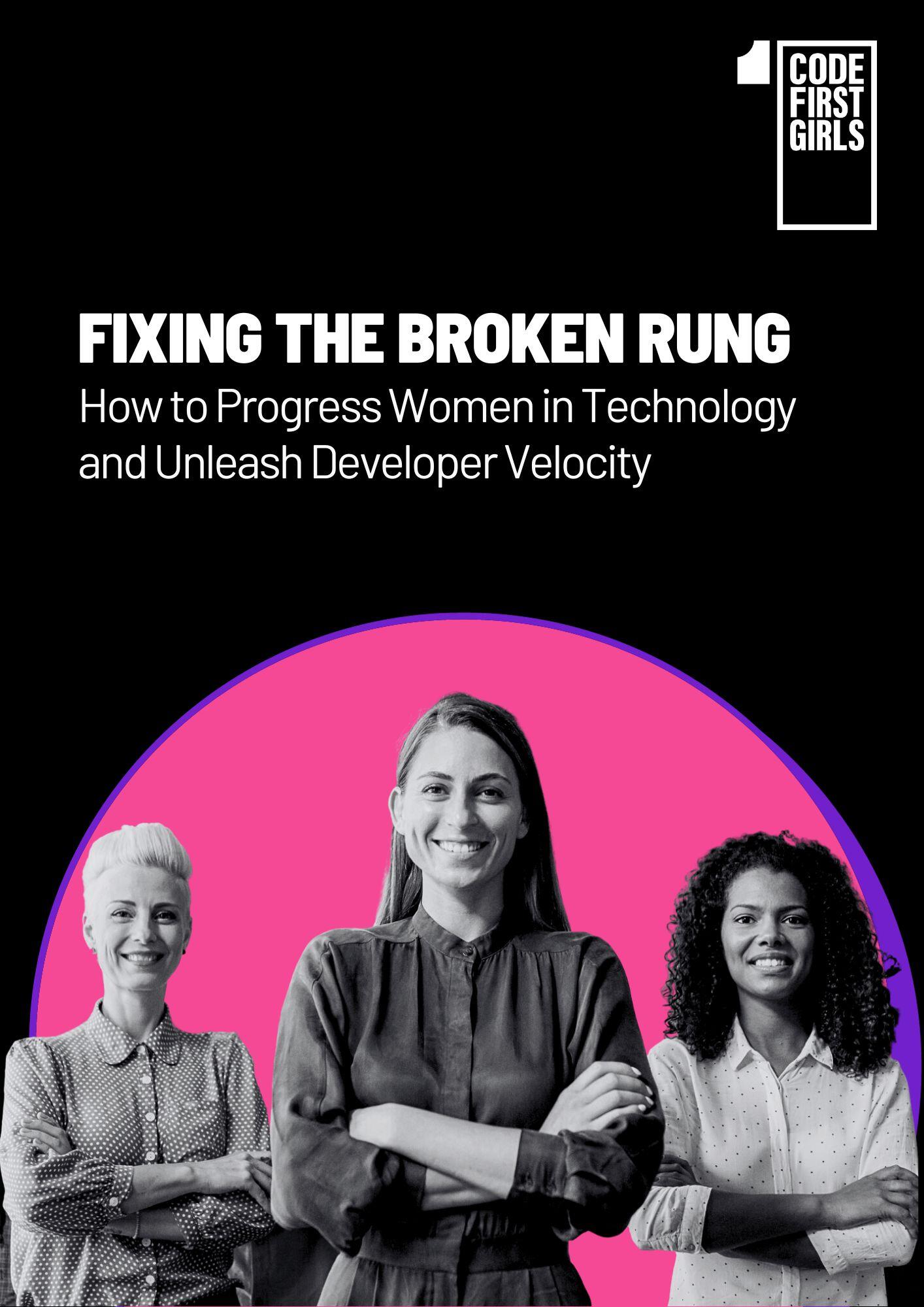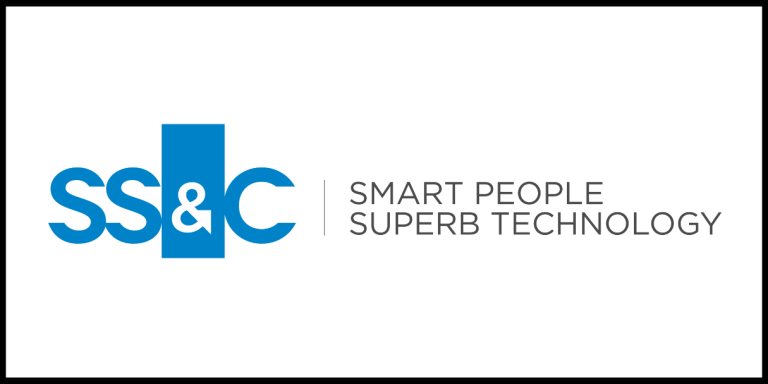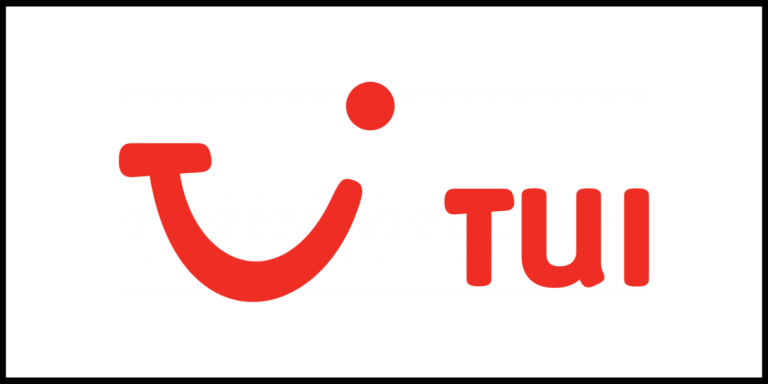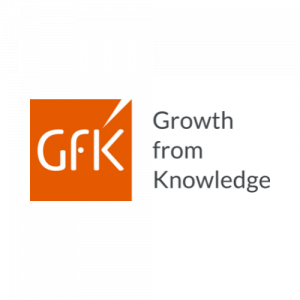Supporting Neurodiverse Employees Report
Home » Progressing Women In Tech Report
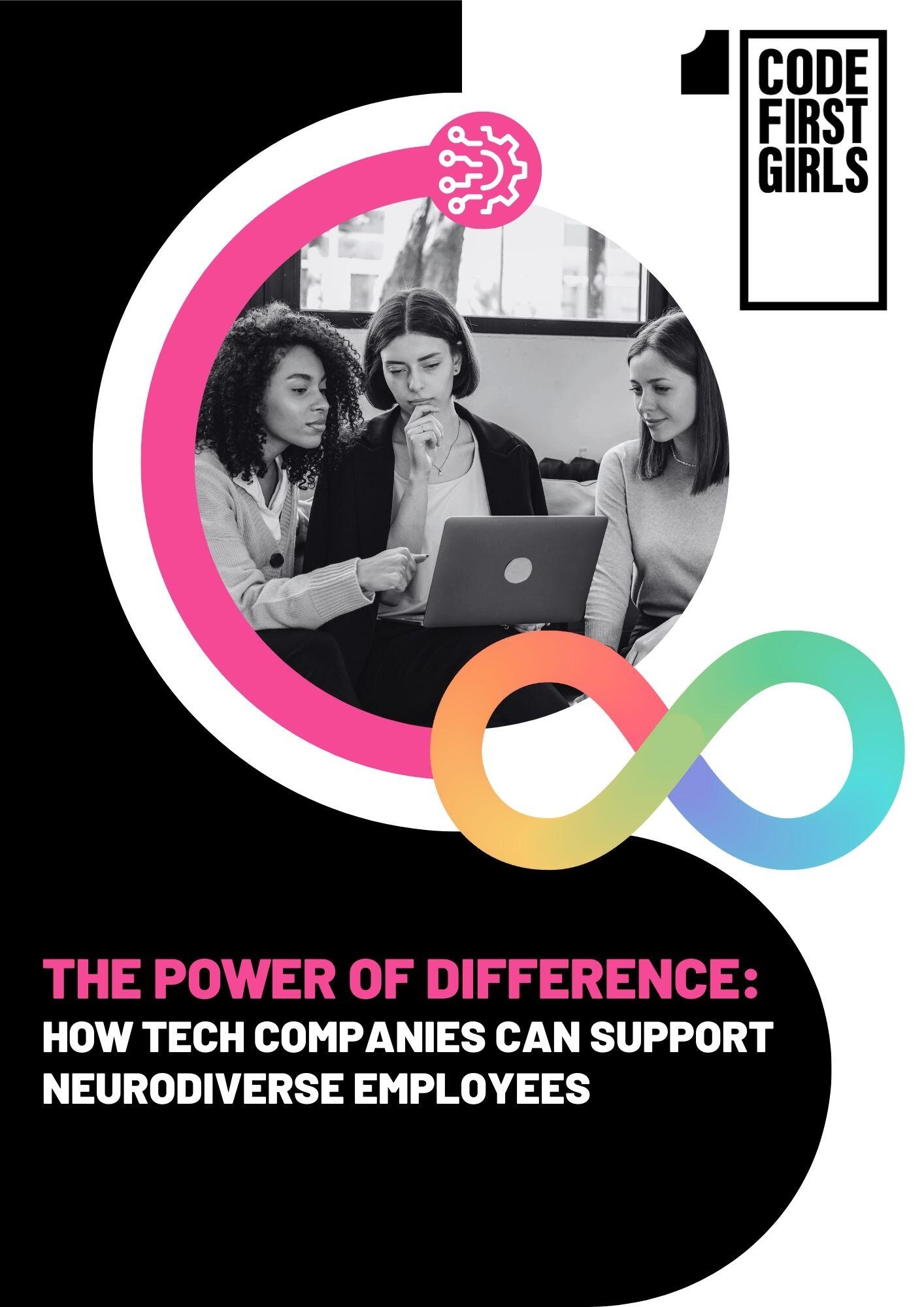
The Power of Difference:
How Tech Companies Can Support Neurodiverse Employees
In Code First Girl’s annual survey, more than one in four of our community identified as neurodiverse. When asked if they’d made their employer (or school and university) aware, almost half said they hadn’t, with 52% admitting they hadn’t felt comfortable doing so.
In our latest report, we asked them, and our ambassadors – two-thirds of whom identify as neurodiverse – about their experience of working in technology. We also gather insights from Code First Girls’ industry partners, many of whom are nurturing neurodiverse talent and unlocking increased productivity in their teams.
Check out our top recommendations for employers wanting to support neurodiverse employees, or download the report below.
TOP 10 RECOMMENDATIONS FOR EMPLOYERS
TOP 10 RECOMMENDATIONS FOR EMPLOYERS
- Adapt the recruitment and selection process
Make questions available ahead of time, give interviewers neurodiversity training, and review any timed testing or screening used. - Have clear policies for employees to access adjustments or support
These should be adequately funded, simple to access (with or without an official diagnosis) and timely. - Be led by neurodiverse employees
Neurodiversity is a spectrum and what helps one person may not help another. - Promote flexible working
This might include remote working, encouraging role flexibility, or adjusting working hours to accommodate energy peaks. - Run company-wide awareness training
Inspire a broader conversation about difference and champion neurodiverse role models who are happy to share their story. - Be mindful of the risk of burnout
Check in regularly to ensure the adjustments in place are still helping and the workload is manageable. Provide employee wellbeing and mental health services. - Set up a support ecosystem
Provide mentors to help neurodiverse people navigate office politics and decode career progression opportunities. - Rethink leadership metrics
The criteria for evaluating leadership potential should cater to neurotypical and neurodiverse candidates. Focus on skills, not personalities. - Champion your neurodiverse employees
Don’t ignore the challenges neurodiverse people face but focus on their strengths rather than challenges. - Promote universal design
Ensuring that everyone is supported at work, regardless of difference.
chapter 1 - HOW TO RECRUIT, PROGRESS AND RETAIN NEURODIVERSE EMPLOYEES
HOW TO RECRUIT, PROGRESS AND RETAIN NEURODIVERSE EMPLOYEES
Many neurodiverse employees do not feel comfortable disclosing their diagnosis to employers for fear of being treated differently and it affecting their progression. As a result, many neurodiverse employees experience burnout, resulting in them leaving the industry. According to the Office for National Statistics, only 22% of autistic adults in the UK are in any kind of paid work and autistic university students are 25% more likely to drop out of their studies than their peers.
Only 22% of autistic adults in the UK are in any kind of paid work
Recruiting Neurodiverse Employees
The misalignment of working conditions and neurodiverse needs starts with the recruitment phase, which is typically designed with ‘neurotypicals’ in mind. One survey found, while 87% of technology leaders said neurodiversity was a top priority in 2023, only 21% have adjusted their recruitment practices to accommodate neurodivergent candidates.
Things to avoid
Overly detailed job adverts and applications
Those with ADHD and dyslexia may struggle to read long adverts and/or believe they’re not the right fit.
Unexpected or complicated interview questions
It’s tempting to ask a number of questions in one go when interviewing but this can be confusing for neurodiverse people.
Timed tests and assignments
Deadlines and time restraints can be challenging for neurodiverse people. Many will opt out of processes where timed tests are involved.
Use of AI to screen candidates
Automated and algorithm-based recruitment technology can unfairly disadvantage candidates who don’t fit the pre-programmed ‘profile’.
Conducting interviews in an overwhelming environment
Noise, smells, and frequent interruptions can all be off-putting for neurodiverse people.
Inclusive Recruitment
Educate hiring managers
A neurodivergent person may not maintain eye contact, pick up on sarcasm, or engage in small talk. That doesn’t mean they don’t have ‘culture fit’.
Create a welcoming environment
This might include giving a tour of the facility in advance, sharing an itinerary ahead of time, and choosing a space with limited sensory triggers.
Simplify questions
Ask direct questions specifically related to the job and necessary skills. Ideally, these will have been shared in advance and followed in the correct order.
Offer breaks
During long interviews, neurodiverse candidates may require breaks to prevent feeling overwhelmed.
Provide clear guidance on next steps
Let candidates know when they can expect to hear from you and in what format. It may be helpful to provide interview notes to the employee for them to review.
Avoiding Neurodiverse Burnout
Many neurodiverse people do not feel able to disclose their condition but struggle to work in typical office environments. The energy required to hide traits and cope with sensory overload makes them more prone to burnout. Others don’t want to limit their career progression opportunities. Both can affect retention if not addressed. For example, Autistic burnout is a syndrome that arises from chronic stress. It manifests as persistent exhaustion, diminished functionality over an extended period (usually exceeding 3 months), and decreased tolerance to stimuli.
When asked if they’d ever experienced burnout at work, nine in 10 of the neurodiverse women Code First Girl surveyed said yes, compared to 77% of the entire cohort. In Tech Talent Charter’s survey, 69% of men say they’ve made their managers aware of their neurodivergence, but only 50% of women have done the same.
Have you ever been in a leadership position at work?
“Commuting and being around people every day is constant hyperstimulation for me, which leaves me drained and exhausted. Sadly people don’t understand how badly I’m affected”.


Progression and a lack of neurodiverse role models
In Code First Girls’ survey, many neurodiverse women talk about the damage they fear disclosing will do to their progression opportunities. While there are examples of neurodiverse people becoming leaders in technology, these tend to be cis white men.

Albert Einstein
ADHD, Dyslexia, Autism

Elon Musk
Autism

Richard Branson
Dyslexia and ADHD

Bill Gates
Dyslexia and ADHD

Steve Jobs
Dyslexia





Indeed 60% of those Code First Girl asked said they’d never been in a leadership position at work, despite 46% being mid-level in their careers. Only 11% are at a senior level versus 14% of those who do not identify as neurodivergent. Code First Girls’ neurodiverse community members are 1.2 times more likely to still be at a junior level.
When asked if they’d ever experienced burnout at work 90% of the neurodiverse women surveyed said yes.
As indicated in Code First Girl’s survey, many people choose not to disclose at all, meaning their managers have no idea what they’re struggling with. Some are concerned about the impact disclosure will have on how their managers or colleagues treat them. But constantly hiding neurodiverse traits – known as social camouflaging – can lead to a higher risk of burnout. We’ve highlighted five common obstacles faced by neurodiverse employees and five ways to overcome them…
5 obstacles faced by neurodiverse employees
Small talk and office politics
Not everyone feels comfortable making small talk or navigating office politics.
Sensory stimuli
Can be incredibly distracting or overwhelming for people with neurodivergent conditions, such as background noise, bright lights and even strong odours.
Time management or deadlines
Many neurodiverse people struggle to estimate how long a task will take, or find deadlines incredibly stressful.
Unannounced meetings or other interruptions
Meetings without a clear agenda and/or expectations can cause confusion or stress for neurodivergent employees.
Post-COVID return to office
Expectations to head back into the office will be hard for people who find it easier to manage their neurodiverse traits in a home environment.
5 ways to overcome those obstacles
Ask employees what they need
Be guided by the individual. Record and discreetly share their needs internally so HR and new line managers are immediately aware.
Accommodate sensory needs
Offer adaptations such as noise-cancelling headphones, computer screen filters, and room dividers, and suggest additional breaks during stressful tasks.
Educate colleagues to boost empathy and understanding
Offer training for staff and managers so they have an opportunity to ask questions about supporting their neurodiverse colleagues’ needs.
Remove jargon and clearly outline action points
Send resources and materials in advance of meetings, and circulate action points afterwards so that the next steps are clear for everybody.
Promote flexible working
Allow people to work from home or in the office, and provide flexibility around working hours so individuals can work when they’re at their best.
Why we should talk about neurodiversity more in the workplace
We spoke to Dr J Harrison, Harbinger of Change at Thoughtworks, to understand their experience as a neurodiverse employee and what Thoughtworks are doing successfully to create an inclusive workplace. Watch our #REPRESENT episode featuring DR J. HARRISON.
Neurodiverse employees leaving the workplace
“The fact that my manager confided he also has dyslexia without phrasing it in a way that made it sound like a problem made me more confident to disclose it to him as well.”


On a scale of one to 10, Code First Girls asked its neurodiverse cohort how supported they feel in their current work or study environment. More than half (54%) gave a score of five out of 10 or lower. More clearly needs to be done to support the neurodiverse women in the workforce, whether they’re open about their obstacles or not.
Could you see yourself staying in the tech industry for the next five years?
“I go through periods of hyperfocus and can become quite knowledgeable in a relatively short period of time.”

“I have been branded difficult or picky due to my traits, such as needing to clarify intent in messages or meetings. I've been branded as anti-social and rude because I can't handle meals with my team after a 10-hour day in the office. Simple requests like sharing the schedule for events ahead of time are ignored.”

“Sometimes I need to be around people, sometimes I need quiet space. Sometimes I burn out and need to go for a walk to recharge. Flexibility means I can work with my struggles and avoid problems building, which leads to burnout.”

“I struggle to concentrate on tasks, make impulsive decisions and come across as socially awkward at times.”

“ADHD exacerbates my feelings of imposter syndrome … I find myself questioning my competence and worth, which can be a significant mental and emotional challenge.”

“I go through periods of hyperfocus and can become quite knowledgeable in a relatively short period of time.”







Chapter 2 - UNLOCKING THE POWERS OF NEURODIVERSITY
How to unlock and embrace the powers of neurodiversity
Supporting neurodiverse employees isn’t just nice to do, it can give technology companies a real competitive advantage. Inclusive teams are 87% more likely to make better decisions than non-inclusive ones and outperform non-inclusive teams across the board – from innovation and productivity to financial performance. When it comes to neurodiversity specifically, research by Deloitte found businesses that “make an extra effort to recruit, retain and nurture neurodivergent workers benefit from increased diversity in skills, ways of thinking and approaches to problem solving”.
Many people who identify as neurodiverse are reliable, conscientious and persistent. They often have high levels of concentration, strong attention to detail, and are highly creative. They can bring new perspectives to a company’s efforts to build products and services that resonate with customers, one in five of whom may well be neurodivergent themselves.
“Discovering how to transform perceived ‘weaknesses’ into strengths has been a crucial aspect of this journey. Having supportive colleagues and managers has also been crucial in shifting my mindset towards viewing my neurodiversity as a valuable part of my individuality.”


Key strengths of neurodivergent employees
- Innovative thinking
- Empathy
- Intuition
- 3D mechanical skills
- Adaptability
- Concentration
- Fine detail processing memory
- Creativity
- Authenticity
- Hyper-focus
- Energy and passion
- Honesty
- Verbal skills
Better pattern recognition, creativity, innovation
Ensuring the conditions are right for neurodivergent employees to thrive is also good for motivation and engagement. When people feel like they can be themselves at work – and not spend copious amounts of energy hiding who they really are – they achieve more. JPMorgan Chase’s Autism at Work programme found that autistic workers can be up to 140% more productive than neurotypical employees if they’re matched to the right job.
A variety of sectors including, security, cyber, retail and finance are actively seeking neurodiverse women to join their workforce. They are looking for creative problem-solving skills and different perspectives to ensure they have a mix of minds, crucial for cracking codes, responding to threats, and making cybersecurity systems less predictable.




Driving diversity in the next-gen of government security
Diversity and inclusion are mission critical for GCHQ, gathering the right mix of minds to find innovative solutions to the toughest of problems. We asked them how they support their neurodiverse employees…
“From GCHQ’s inception more than 100 years ago, we have always valued different perspectives and diversity. And to keep the UK safe for the next 100 years we are pioneering a new kind of security for an ever more complex and interconnected world. We’re brilliant in some ways, for example in harnessing the talents of our neurodiverse staff. We are proud of what we have achieved so far, but we know we still have a way to go to become a truly inclusive organisation.”
“We have several support networks, owned and led by people across the organisation to provide support, challenge and education to the organisation too, covering many areas including neurodiversity. We also have senior champions at board level for these interest groups, working across the organisation and beyond to build up expertise and champion those groups at senior level”
Many people who identify as neurodiverse are reliable, conscientious and persistent. They often have high levels of concentration, strong attention to detail, and are highly creative. They can bring new perspectives to a company’s efforts to build products and services that resonate with customers, one in five of whom may well be neurodivergent themselves.
Examples of typical adjustments at an interview
-Taking notes and mind maps into the interview
-Having extra time to compensate for slower processing speed
-Not being asked multiple questions at the same time
-Using a whiteboard or flipchart to ‘park’ questions to return to later
Examples of workplace adjustments
-Mind mapping software
-Noise-cancelling headphones
-Voice-to-text/text-to-voice software
-On-screen reading rulers

Examples of typical adjustments at an interview
- Taking notes and mind maps into the interview
- Having extra time to compensate for slower processing speed
- Not being asked multiple questions at the same time
- Using a whiteboard or flipchart to ‘park’ questions to return to later
Examples of
workplace adjustments
- Mind mapping software
- Noise-cancelling headphones
- Voice-to-text/text-to-voice software
- On-screen reading rulers
"Neurodiversity is key to keeping Britain safe. At GCHQ, some of our most talented and creative people have a neurodiverse profile – including dyslexia, autism, dyscalculia, and dyspraxia. Having a diverse team and a mix of minds better equips us to carry out our mission and tackle new and emerging threats posed by terrorists, criminals, and hostile states."

Policy and Engagement

Policy and Engagement
Chapter 3 - HOW EMPLOYERES ARE SUPPORTING NEURODIVERSE EMPLOYEES
Better pattern recognition, creativity, innovation
Neurodiversity is only a strength if it’s allowed to be. Employees need the right support. Tech Talent Charter’s research found only 22% of respondents have sensory relaxation spaces in the office, while 29% have been offered training to support neurodiverse colleagues. Only 25% believe their company has a culture that celebrates neurodiversity. There is no one right answer to the question of how to make the workplace more welcoming and nurturing for neurodivergent women. But there are several steps businesses should take to advance in the right direction.
Recruitment and selection policies
Recruitment and selection policies need to be streamlined and adjusted to accommodate a broader pool of talent. That might include making questions available ahead of time, ensuring interviewers have had neurodivergent training, and reviewing psychometric testing or other screening used (including that which utilises AI). Organisations should also make it clear in job advertisements and on their websites that they welcome neurodivergent candidates.
Building awareness
Businesses should educate their wider teams about neurodiversity’s benefits and challenges, and champion those that are happy to share their stories. Offer mentoring to help workers navigate career progression and office politics. Review evaluation metrics, and prioritise performance criteria over those around personality.
Adjustments to the workforce
Businesses should have a clearly defined workplace assessment process so that workers can ask for reasonable adjustments at work. Managers can also use this opportunity to understand what they find most challenging and what helps – they may agree to not schedule last-minute meetings, for example.
Other adjustments might include flexible working, role flexibility, and providing noise-cancelling headphones or other assistive software. Arrange regular catch-ups to ensure such provisions are still working and signpost to other available help and initiatives, where suitable.
CFG Ambassador Ritika Gurung said her employer helped her apply to the Access to Work government scheme, which provides grants of up to £62,900 per year, depending on an applicant’s specific needs. “I received a grant for ADHD coaching lessons through my workplace, which would’ve been extremely expensive if I were to book it myself,” Ritika added.
“Listen and be clear with the expectations you have of your employees. If you have something to say, be kind and considerate but upfront. If it can be written down to refer to later, even better. Where possible remove the guess work of expectations and make them clear, concise, transparent, realistic, considerate.”

“Some days may be harder than others but my neurodiversity does not define me or my success. If anything it’s a beautiful part of me that has helped me be the woman I am today.”



Ongoing support
Ambassador Daniella Polor said she’s benefited from “extra time to complete tasks, extra breaks when I feel overwhelmed and additional equipment to aid me in my daily tasks”.
Another, Claire Evans, said she’s been provided with specialist IT software and access to a quiet room. “In a previous role, I mentioned that I don’t think I’m supposed to do something unless I’m specifically instructed to,” she added. “My manager came up with the idea that after every team meeting, I would email her a summary of what was discussed and any action points for myself to make sure I understood correctly and didn’t miss anything. This worked really well for me.”
One issue that came up in Code First Girls’ survey was requests for a disability declaration, which not all neurodiverse women will have. “If someone says they need something in order to work effectively, believe them and don’t make them justify it with a diagnosis,” one survey respondent said.
Providing other mental health support can also combat the risk of burnout. Asked whether they’d leave or consider leaving a company if they had poor mental health support services and policies, almost two thirds (62%) of neurodivergent respondents said yes versus 55% of the general cohort.
Neurodiverse people have much to offer the technology sector. From creative ideas and periods of intense focus, to better pattern recognition and productivity gains, neurodiversity can give teams a real competitive advantage.
But they need unwavering support and open acceptance to fulfil their full potential. It’s possible to maximise the talent of people who think differently. At a time when tech companies are being pushed to be more innovative, more productive and more agile, neurodiversity is the superpower hiding in plain sight.


